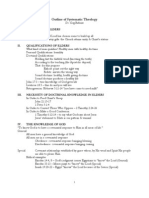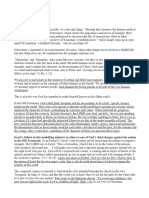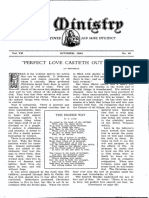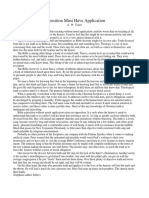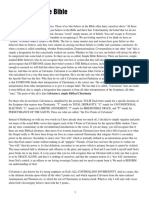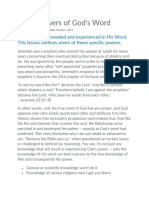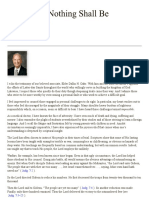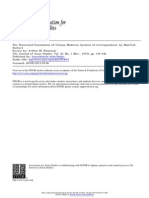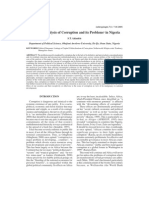0% found this document useful (0 votes)
57 views13 pagesUntitled
The document discusses Rousas John Rushdoony's book 'Politics of Guilt and Pity,' emphasizing the importance of understanding wisdom through the lens of the Reformed Christian faith. It highlights the author's background and influence, as well as the need for a comprehensive application of God's Word to all aspects of life. The foreword stresses the significance of recognizing God's authority in shaping societal norms and the consequences of deviating from biblical principles.
Uploaded by
RogerCopyright
© © All Rights Reserved
We take content rights seriously. If you suspect this is your content, claim it here.
Available Formats
Download as TXT, PDF, TXT or read online on Scribd
0% found this document useful (0 votes)
57 views13 pagesUntitled
The document discusses Rousas John Rushdoony's book 'Politics of Guilt and Pity,' emphasizing the importance of understanding wisdom through the lens of the Reformed Christian faith. It highlights the author's background and influence, as well as the need for a comprehensive application of God's Word to all aspects of life. The foreword stresses the significance of recognizing God's authority in shaping societal norms and the consequences of deviating from biblical principles.
Uploaded by
RogerCopyright
© © All Rights Reserved
We take content rights seriously. If you suspect this is your content, claim it here.
Available Formats
Download as TXT, PDF, TXT or read online on Scribd
/ 13


















